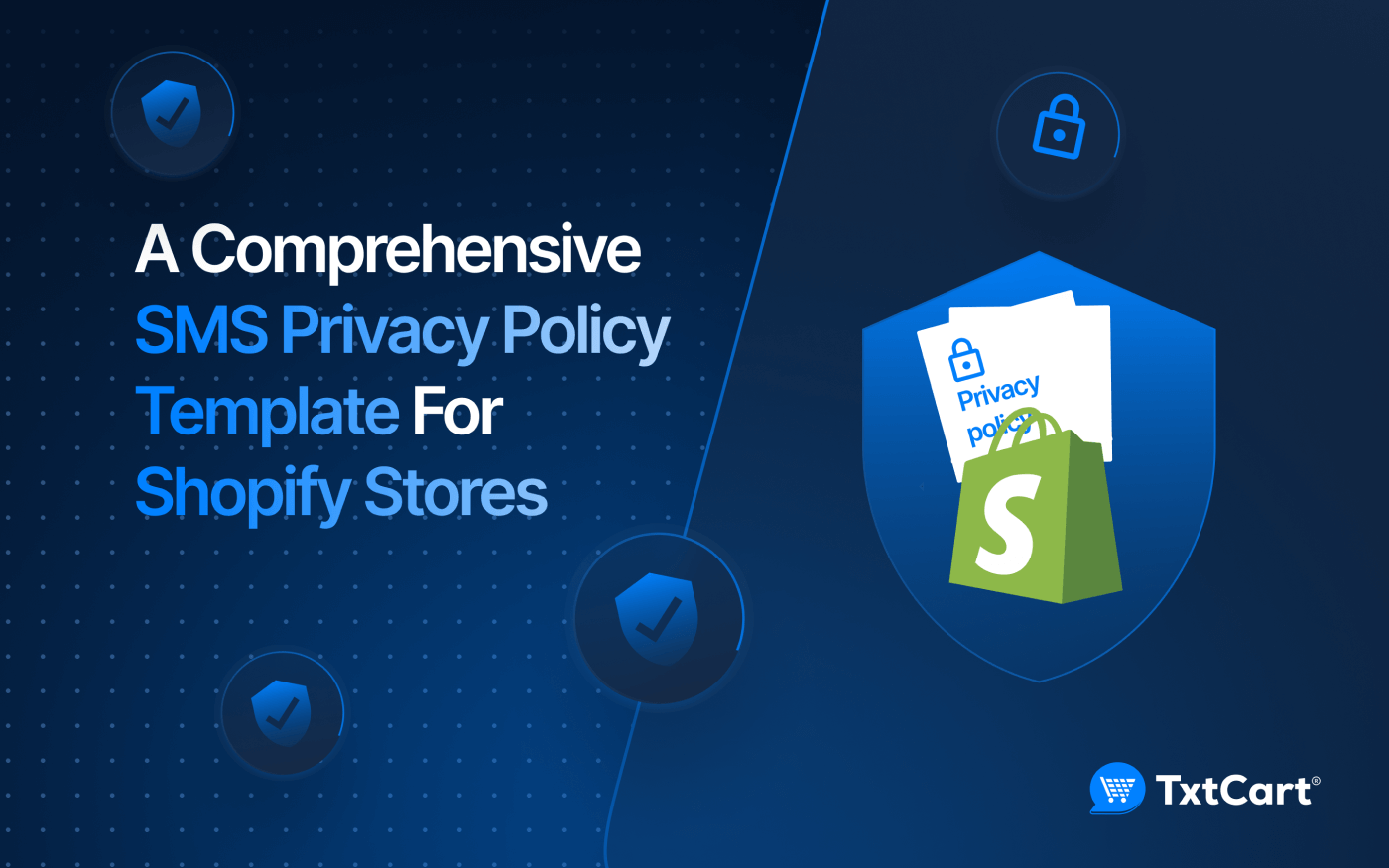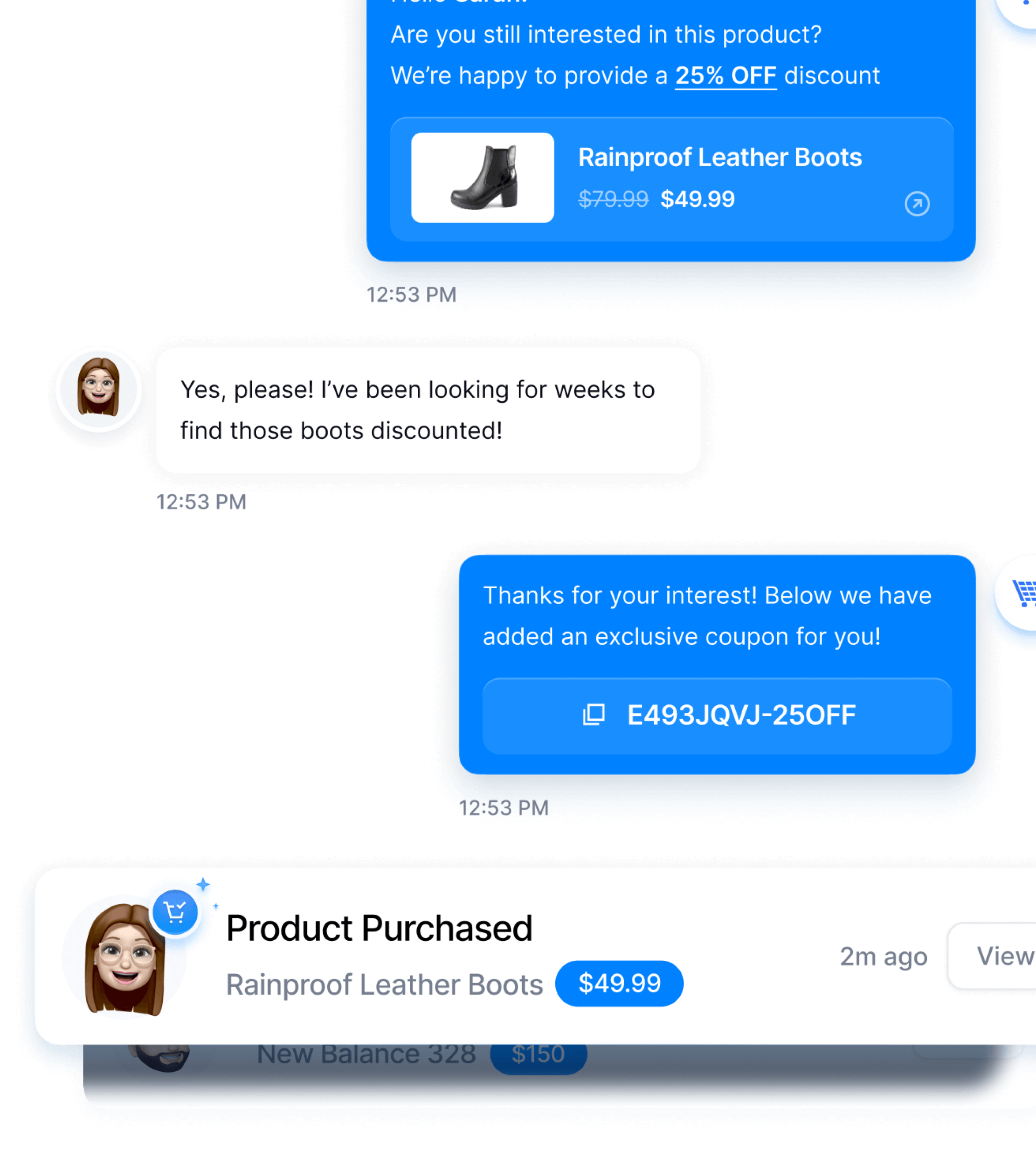With SMS becoming increasingly common in use for marketing, support, and running of promotions, consideration of customer data privacy remains foremost. This is not just a legal requirement but goes to the very core of the long-term trust and reputation of any business venture—the reason why a comprehensive SMS privacy policy has to be formulated. This is what we will cover in greater detail in this blog.
Introduction to SMS Privacy Policies
An SMS privacy policy outlines how personal data will be collected, used, and managed under an initiated SMS marketing program. This represents a guarantee of compliance with privacy laws while engendering trust with customers by being transparent about data handling practices.
It details the type of information gathered, how it will be used, and with whom it might be shared. It also includes rights with regard to their data for users. It’s also known as a “privacy statement” or “privacy notice.” Such a document is legally compulsory for compliance and equally for gaining the trust of customers. It should be easily accessible on the company’s website.
Note that the SMS privacy policy is different from the SMS terms and conditions.
Key elements of an SMS privacy policy
Some of the key elements of an SMS privacy policy include:
1. User consent and opt-out options
Every text campaign is going to require user consent. Basically, that means a business has to get users to opt in, usually by responding with a keyword or by signing up via a web form.
Consent clearly states what users can expect to receive. It is also important to provide an easy way out as every message should include instructions on how to stop receiving texts; usually, by replying with “STOP” or similar keywords.
This type of transparency into what is being communicated to customers serves to ensure that companies, at worst, protect their brand and avoid legal issues with the TCPA and GDPR provisions.
2. Data collection and usage
Businesses should make explicit what information they gather about the end-user and how that information shall be used. Normally, this includes telephone numbers, names, and interaction history.
It is important to inform users for which purposes their data will be collected, such as sending promotional offers, order updates, or personalized messages. Even more important is making sure that it is highlighted that the collected information will only be applied to the intended objectives by those persons involved in the study, and it will be kept safe.
3. Third-party sharing and disclosure
It is very important to include any sharing with third-party services in an SMS privacy policy.
A company should indicate whether, under what conditions, and for what purpose user information may be shared with third-party services, for example, to marketing or analytics providers.
Very importantly, the user must be reassured that third parties are constrained to equivalent standards of privacy and security. Such transparency will at least engender trust among users and will serve businesses in compliance with many regulations, including GDPR, which requires clear articulation of data-sharing practices.
Creating your SMS privacy policy
Here are a couple of tips to consider while creating your SMS privacy policy:
1. Language and clarity
Write your SMS privacy policy in a language simple enough for any user to know what you mean. This means trying not to use any legal jargon or other difficult words that may be hard for your customers to understand. Simple and plain words develop trust and provide legal guard by making the policy clear and understandable to all users.
Also, keep the policy open and readable for all users to know their rights and how data is going to be treated.
2. Updating and modifying your policy
Review and update your privacy policy on an SMS regularly to keep it relevant should there be any change in data practices or new enactments of laws on privacy. This helps in keeping the policies relevant and in compliance with new regulations.
Also, clearly inform your customers of any updates; this could be through direct notification or posting on the website. Alerting users to changes keeps you genuinely transparent, engenders trust, and ensures they are always informed about what is happening to their data.
Implementing your SMS privacy policy on Shopify
Some steps to consider for the implementation of your SMS privacy policy on Shopify are:
1. Display and accessibility
Making your SMS privacy policy easily readable in your Shopify store is important. You must clearly display the policy on the website, especially at the time of the creation of your SMS opt-in.
Always add the link to the privacy policy in your sign-up forms and in every SMS. This kind of transparency lets users know how their data will be used and reassures them of your concern for their privacy.
It helps to build trust with your customers, facilitates their having a copy of the policy always with them, and gives them necessary information about the protection of their rights concerning their personal data on their persons at all times.
2. Ensuring compliance
Audit your SMS marketing regularly to ensure compliance with your SMS privacy policy. Ensure that all activities are according to the indicated usage of data and obtaining consent. Educate your staff on privacy best practices so they know how to deal with customers’ data responsibly and be in a position to respond to privacy-related issues.
Respond promptly to customer inquiries or complaints on privacy-related issues, showing your commitment to their information being secure. Keeping such tight controls over compliance and being responsive to concerns will foster trust among customers while ensuring conformance to the law.
Examples of SMS privacy policies
A few examples include:
1. UNICEF USA

UNICEF USA’s SMS privacy policy outlines how they collect, use, and protect personal information received through their SMS service. It emphasizes transparency, user consent, and security measures to protect data.
2. Girl Scouts of the USA

Policy Description: The Girl Scouts of the USA’s SMS privacy policy covers the collection and use of personal information for their text messaging marketing program, emphasizing user consent and data protection.
Conclusion
To ensure you’re complying with all privacy policies, you must rely on the best SMS marketing app.
One such SMS marketing tool is, Txtcart.
Along with the compliance policies, TxtCart also offers robust features for custom SMS campaigns and detailed performance tracking for better decision-making, based on data-driven performance.
Install the TxtCart app today and reach out to our team of experts for better results.







